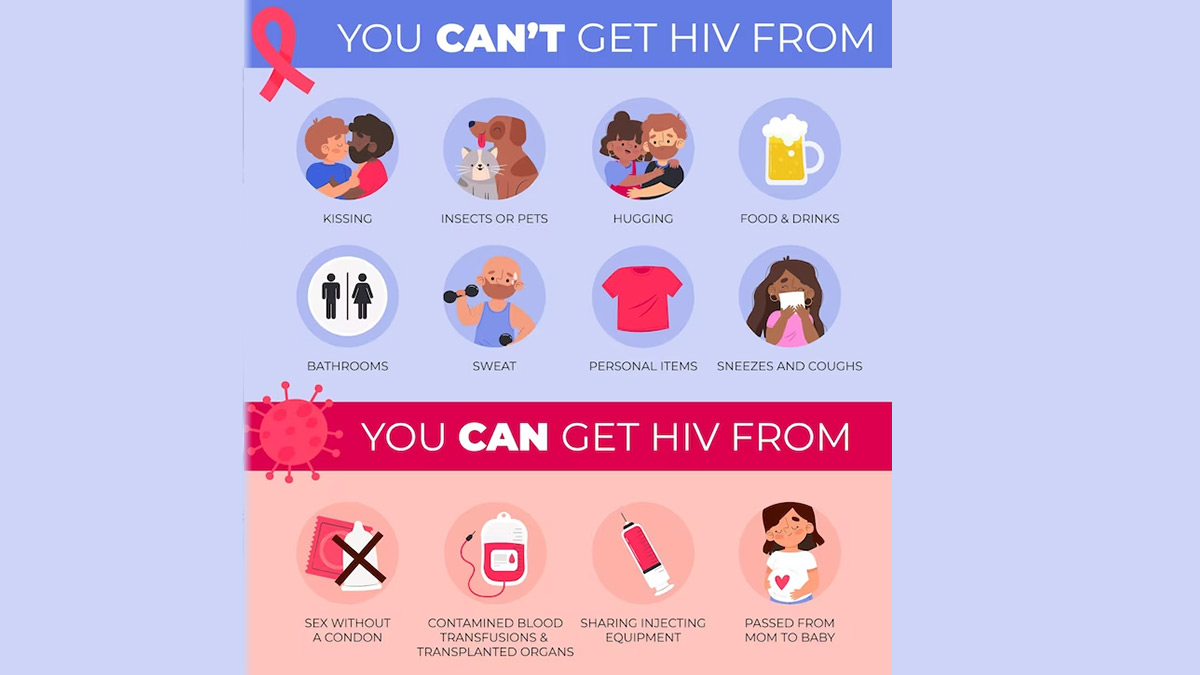

Hepatitis is inflammation of liver and is very common among people with HIV. Hepatitis and HIV are virus borne diseases that affect the liver and immune system of a person. Hepatitis A, hepatitis B, hepatitis C and HIV are transmitted through unprotected sexual intercourse in most cases, shares Dr. Rajnish Monga, Chief of Gastroenterology, Paras Health- Gurugram. Other modes of transmission include consuming contaminated food or water; mother to child during pregnancy; contact with blood; used needles and syringes and others.
There are vaccines for Hepatitis A and B and guaranteed treatments for all three. Hepatitis A lasts for about 2 weeks; hepatitis C is also highly curable; however, hepatitis B is a lifelong condition which cannot be completely cured. Antiviral drugs can suppress the hepatitis B virus and delay the liver damage. Untreated HIV can increase the risk of liver problems, leading to severe inflammation in the liver. Excessive dosage of anti-HIV drugs and Vitamin A can also cause liver damage followed by fatal cancer. While Hepatitis can be treated, an HIV positive person can stay sick with Hepatitis for a longer duration than an HIV negative person.
Can hepatitis cause HIV?
People can be coinfected with Hepatitis and HIV simultaneously. It is referred to as “HIV/HCV coinfection” in case of hepatitis C and “HIV/HBV coinfection” in case of hepatitis B. This coinfection can increase the risk of complications in treatment as it may lead to severe damage to liver and immune system.
Also Read: How Does Hepatitis Affect A Pregnant Woman?

HIV does not have any particular symptoms. The most common symptoms for hepatitis include:
- Yellow skin or eyes (Jaundice)
- Dark urine
- Pale stool
- Abdominal pain
- Fatigue
- Nausea
- Fever
- Joint pain
- Loss of appetite
People with HIV infection become immunosuppressed. Therefore, they have a reduced response towards the vaccine for hepatitis further increasing the risk of coinfection. However, with a timely treatment hepatitis with HIV can be treated. In some cases, common anti-viral drugs can be used to treat both – HIV and hepatitis. Hepatitis A can be treated in a course of about 2 weeks. Hepatitis C treatment can cure 97% of people with HIV/HCV. However, like the treatment for HIV, hepatitis B treatment may also be lifelong. A person with HIV/HBV would require anti-viral medications for both HIV and HVB for the rest of their life.
Also Read: 5 Ways To Stay Healthy As An HIV-Positive Person
How to prevent HIV if you have hepatitis?
Vaccination is the primary prevention for HIV, hepatitis, and their coinfection. HBV vaccines are universally recommended for infants, children, and adult. Even the adults aged 60 and above infected with HIV must get immunized for hepatitis. Other preventive measures include:
- Protected sexual intercourse (promote use of condoms)
- Sanitized needles and syringes
- Avoid injection of any kind of drugs
- Immediate immunization of a child after birth who has been exposed to the virus through mother
Prevention is always better than cure. Even if there are treatment options and cures for viral infections like hepatitis and HIV, one must always take necessary precautions to avoid exposure to such diseases. First step towards a safer life is adopting a healthy and safe lifestyle, live in a clean environment and maintaining healthy social relationships.
اكتشاف المزيد من ينبوع المعرفة
اشترك للحصول على أحدث التدوينات المرسلة إلى بريدك الإلكتروني.
